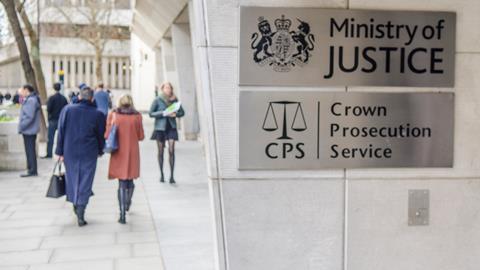High levels of burnout and frustration have led to rising levels of staff turnover at the Crown Prosecution Service, according to a report from civil service trade union FDA.
In light of the government's pledge to halve violence against women and girls over the next decade, the FDA surveyed 550 CPS staff on the strain that financial and administrative challenges are placing on them to prosecute rape and serious sexual offences (RASSO).
According to the survey:
- 92% said the current backlogs were inhibiting the prosecution of RASSO;
- 92% agreed that the inadequate staffing numbers within the CPS are a barrier to fulfilling their roles to the best of their abilities;
- 89% of staff believe their workload has increased over the last three years. 86% said their current workload was affecting their ability to maintain a healthy work-life balance; and
- 74% agreed that issues with technology inhibit their ability to work effectively.
While the workforce has been growing, so too has staff turnover, which was 8.1% in 2022-23. While there is no publicly available data on turnover in RASSO units, the report says anecdotal evidence suggests turnover within RASSO units is higher than across the department as a whole.
'This is backed up by qualitative evidence from Operation Soteria, which suggests that the particularly emotionally challenging nature of RASSO prosecution leads to higher staff turnover within RASSO units both in the police force and within the CPS.
'Interviews conducted with RASSO staff in the CPS for Operation Soteria report revealed a consensus that more experienced staff were better equipped to manage the emotionally intricate and challenging aspects of RASSO prosecutions. Participants highlighted that, over time and with experience in the role, they have developed effective coping mechanisms. These strategies helped them handle the demands of the job without adverse effects on their wellbeing.'
However, an event in parliament yesterday to discuss the findings heard that new recruits often leave after a couple of years.
The event, conducted under the Chatham House Rule, heard that the CPS was struggling to retain staff partly due to the dwindling pool of lawyers with criminal law experience. New recruits might be, for instance, former conveyancers or personal injury lawyers. CPS staff have to carve out time to train them. However, they leave after a couple of years because the job proved too tough.
The report recommends additional specialisation, training and support for RASSO lawyers to improve retention.
This article is now closed for comment.




























7 Readers' comments